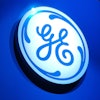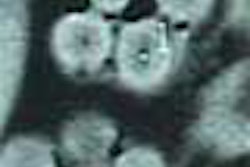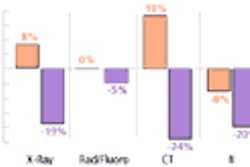CHICAGO - CT lung screening stands up well against traditional measures of cost-effectiveness, according to research presented on Monday at the 2003 RSNA meeting in Chicago.
Dear AuntMinnie.com member,
CHICAGO - CT lung screening stands up well against traditional measures of cost-effectiveness, according to research presented on Monday at this week's RSNA meeting in Chicago.
According to 10-year results from the Early Lung Cancer Action Project (ELCAP), a population-based CT lung screening program would cost $2,500 for each patient year of life saved, a number that is far below the figure of $50,000 per patient year of life saved that is the threshold of cost-effectiveness in the U.S.
Lead researcher Dr. Claudia Henschke of New York Hospital/Cornell Medical Center in New York City also discussed other interesting aspects of the ELCAP study. For example, CT lung screening helps detect lesions at an earlier stage of development, with 80% of the lung cancers detected being Stage 1 lesions. Women smokers in the study were also twice as likely to develop lung cancer as men, she said.
In other RSNA presentations, Pakistani investigators presented results comparing different imaging modalities for detection of drug smuggling, while European researchers discussed results from MRI screening studies of women with genetic history of breast cancer.
In the technical exhibits, the next generation of multislice CT scanners has grabbed the attention of attendees, with vendors introducing 32-slice, 40-slice, and even 64-slice systems. Meanwhile, two major players in the market for computer-aided detection (CAD) systems announced that they were joining forces in a corporate merger.
Looking for the inside scoop on all the goings-on in Chicago? Then just log in to our RADCast@RSNA, where AuntMinnie's editorial team brings you all the latest clinical and business news from medical imaging's largest meeting. Point your browser to radcast.auntminnie.com.



















